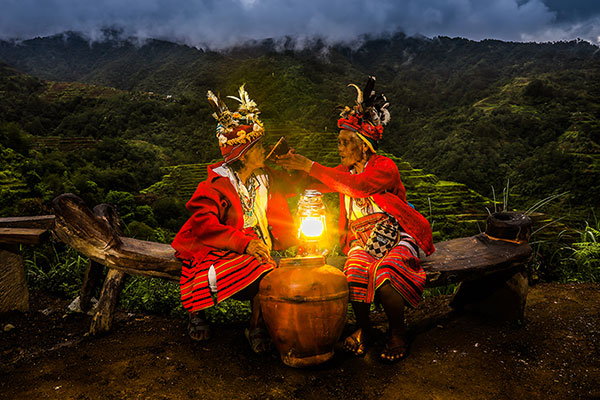TEXT BY SHARON RUTHIA, POLICY TEAM INTERN
A year before the pandemic hit its peak in 2020, I had been previously engaged with the Global Youth Biodiversity Network (GYBN*), the Kenyan Chapter, in the advocacy for the draft of the post-2020 Global Biodiversity Framework (GBF). I came to know about the United Nations Convention on Biological Diversity (UNCBD) Women’s Caucus through information being shared in the GYBN platforms. Since I came from a legal background and had already worked with numerous women and girls organizations, I was keen to learn and engage with the work of the UN CBD Women’s Caucus.
For close to a year and a half, I followed up the work and engagements of the UNCBD Womens’ Caucus led by a determined team from the Women4Biodiversity organization. I assisted with a series of webinars and strings of emails sent to the registered members. I became familiar with their work, which revolved around biodiversity issues at the national, regional and international levels. I initially joined as an intern to support some activities of the Women’s Caucus and later joined the Women’s Caucus Secretariat to support in the preparation of CBD COP15.
One of the key tasks I was involved in was the review of the draft Post-2020 Gender Plan of Action in preparation for the Open Ended Working Group 3. I was also privileged to represent Women4Biodiversity at the Fifteenth meeting of the Conference of Parties of the United Nations Convention to Combat Desertification that took place in Abidjan, Côte D’ Ivoire. During this COP 15, I was part of two events: the Food Day and the Gender Day. I represented Women4Biodiversity as a panelist during the Food Day event at the Rio Pavilion, an event convened by the WWF International with discussions centered on food systems and the direct impact they have on biodiversity, climate and peoples’ livelihoods. I was also able to attend the UNCCD Gender Day event, where the theme revolved around womens’ empowerment by enhancing access to land rights and natural resources, as well as their inclusive and active participation in policy formulation and implementation of the convention. The highlight for me during this COP 15 was the adoption of the Abidjan declaration on achieving gender equality for successful land restoration. Please click here to read my reflection of the UNCCD COP 15

In June 2022, following the Geneva meeting, the CBD convened a full week of the Open-Ended Working Group 4 (OEWG-4) in Nairobi, Kenya. This was my first time attending a CBD meetings in person, which was held in Nairobi, Kenya. Women4Biodiversity supported my participation and I was able to engage and deliver the closing statement for the said meeting.The OEWG-4 brought together yet again different stakeholders in the biodiversity arena to discuss the draft GBF that was to be adopted later on at CBD COP 15 (Fifteenth Meeting of the Conference of Parties to the Convention on Biological Diversity). As time was quickly running out, intense negotiations were carried out on the draft GBF document throughout the week as we continued with our advocacy on the introduction of a stand-alone gender target in the draft GBF. Before the end of the OEWG-4, Costa Rica took the floor and finally presented the gender target which was included in the draft GBF as Target 22 and fortunately garnered the support of close to 50 parties. I had the chance to read the UNCBD Women’s Caucus closing statement.
The second part of CBD COP 15 finally took place in Montreal in December.. This COP would prove to be monumental to the Womens’ Caucus members as the Parties to the CBD adopted the post-2020 GBF and the post-2020 Gender Plan of Action. This opened various advocacy opportunities for the members to sensitize parties on the need for having a gender target adopted in the post-2020 GBF. Women4Biodiversity team further emphasized this by distributing flowers to supportive Parties and allies, issuing policy documents with information on the gender target and organizing gender events at the Women Hub in the Action Area zone. At last, all our efforts bore fruit. The second phase of the COP 15 concluded with both documents being adopted by Parties and a gender target (Target 23) in place!
With this major milestone in place, it is now up to the Parties to implement these 23 targets into their national frameworks, setting the ball in motion to achieve the three objectives of the UNCBD.
Women4Biodiversity, having officially launched five partner restoration sites across the different regions of the world and in collaboration with the Women’s Caucus members, constantly monitors and assists Parties in the review and formulation of National Biodiversity Strategies and Action Plans (NBSAPs) and National Reports in their respective countries. This will ensure that the gender target is fully implemented and the ambitions of the Kunming-Montreal Global Biodiversity Framework are realized.
During my time at Women4Biodiversity, I worked with a bevy of ambitious women, grew and developed a passion for biodiversity, and gained better understanding on how gender issues should be incorporated in biodiversity policies and planning. It is my passion to be part of a bigger plan in changing the world and making it a better place. With the adoption of a stand-alone gender target in the Kunming-Montreal Global Biodiversity Framework and the post-2020 Gender Plan of Action. All thanks to the Women4Biodiversity team and the UNCBD Women’s Caucus members.
In retrospect, I may be one of the few lucky ones to write that the pandemic brought new opportunities for me. In a way, I feel it did work in my favour.
*GYBN is the youth constituency, one of the major groups engaging with the Convention on Biological Diversity (CBD)


